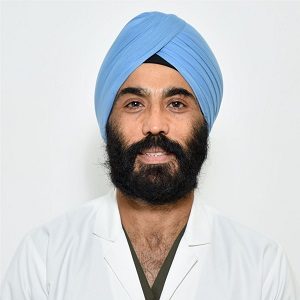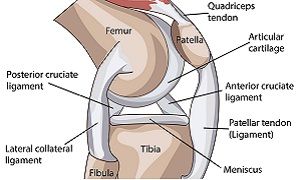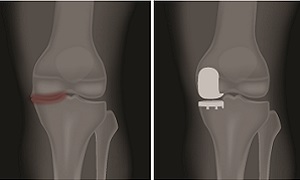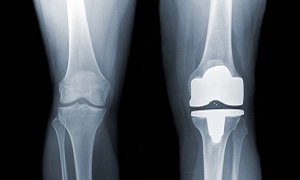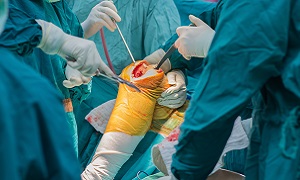Best Orthopaedic Surgeons in India for Knee Replacement Procedure
- Spine Surgeon and Orthopaedic Surgeon, Chennai, India
- Over 18 years’ experience
Profile Highlights:
- Dr. Muralidharan Venkatesan is a consultant in spine surgery from Chennai.
- He provides comprehensive cervical (neck), thoracic (upper back), and lumbosacral (lower back) conditions treatment.
- Dr. Venkatesan pursued MBBS, MRCS, and a fellowship FRCS and shifted his specialization to spinal surgery.
- Dr. Venkatesan has his papers published in several journals.
- Orthopedic Surgeon and Spine Surgeon, Chennai, India
- Over 23 years’ experience
Profile Highlights:
- Dr. Ravi Venkatesan is a spine surgery specialist from Chennai, Tamil Nadu.
- His experience in spine surgery, orthopedics, and spine deformity surgery date back nearly 23 years.
- Dr. Venkatesan has performed several surgeries and has been an active member of various orthopedics groups.
- Many organizations have recognized his service and have awarded him for his dedication.
- Orthopedic Surgeon, Gurugram, India
- Over 10 years’ experience
Profile Highlights:
- Irfan Banday is a brilliant young orthopedic surgeon with over 10 years of experience handling trauma surgeries and ortho problems.
- Irfan received Fellowship in Knee Arthroscopy and Arthroplasty and Shoulder and Upper Limb Arthroscopy, Arthroplasty & Reconstructive Surgery.
- He manages simple & complex fractures, Reconstructive Surgeries of the Knee, Shoulder, Upper limb, and complex tendon transfers.
- Orthopedic Surgeon, Gurugram, India
- Over 18 years’ experience
Profile Highlights:
- Sandeep Chauhan is one of the best orthopedic surgeons and an expert in managing complex fractures, even in children, soft tissue injuries, septic arthritis, and osteomyelitis.
- He performs fracture reconstructions; and arthroplasty procedures like surface replacements, cemented and un-cemented THR, Total Knee Replacement, musculoskeletal infections, UKA knee, hip, shoulder, & elbow replacements.
- Orthopedic Surgeon and Spine Surgeon, Gurugram, India
- Over 15 years’ experience
Profile Highlights:
- Dr. Hitesh Garg is one of the best spine surgeons in Gurugram.
- Dr. Hitesh Garg has undertaken over 5000 spine surgical operations, including 2500+ spinal fusions (TLIF, ACDF, and others); 1000 malformation revision operations (Scoliosis and kyphosis), 300 lumbar and cervical artificial disc replacements, 500 fracture treatments, and 500 other intricate procedures such as a spinal tumor, congenital defects, and spinopelvic fixations.
- Orthopedic Surgeon, Gurugram, India
- Over 25 years’ experience
Profile Highlights:
- Dr. I.P.S. Oberoi is the leading Orthopedic and Joint Replacement Surgeon in India with over 25 years of experience.
- He has a 97% success rate in performing more than 7000 joint replacements.
- He was the first and one of the only a few surgeons to do Key Hole Surgery (Arthroscopy) for Shoulder, Knee, Elbow, Hip, and Ankle Injuries.
Best Knee Replacement Hospitals in India
Knee Replacement
Knee Replacement is a surgical procedure used to treat arthritis that causes pain and limits the movement of the knee joint.
In Knee Replacement, the diseased or damaged joint is replaced by an artificial joint or prosthesis. The choice of prosthesis depends upon the age, weight, level of activity and overall health of the patient.
About Knee Joint
Knee joint is a hinge and synovial joint where the upper and lower leg meets. It allows to sit, stand, walk or squat.
The knee joint comprises of Femur (thigh bone), Tibia (shin bone) and Patella (Knee cap).The tibia and femur and the back of patella are covered with the articular cartilage.
The ligaments of Knee joint are:
- Medial Collateral Ligament- connects the medial side of tibia to medial side of femur (hip bone).
- Lateral Collateral Ligament- connects the lateral side of tibia to lateral side of femur (hip bone).
- Anterior Cruciate Ligament- attaches the tibia and the femur in the center of the knee.
- Posterior Cruciate Ligament- attaches the tibia and the femur.
- Patellar ligament – attaches the kneecap to the tibia.
When is a Knee Replacement needed?
Knee Replacement is considered as the last resort for knee arthritis or injury. Indications of TKR are:
- Severe and prolonged pain in the knee that aggravates during the night.
- Swelling in the knee that doesn’t subside with rest & medication.
- Bowing in or out of the leg.
- Osteoarthritis & Rheumatoid arthritis
Types of Knee Replacement
- Partial Knee Replacement
- Total Knee Replacement
- Bilateral Knee Replacement
- Unilateral Knee Replacement
Partial Knee Replacement
A partial knee replacement is surgery to replace only one part of a damaged knee. It can replace either the inside (medial) part, the outside (lateral) part, or the kneecap part of the knee. Partial knee replacement surgery removes damaged tissue and bone in the knee joint. The rest of your knee is preserved. Partial knee replacements are most often done with smaller incisions, so there is less recovery time.
Total Knee Replacement
A total knee replacement is a surgical procedure whereby the diseased knee joint is replaced with artificial material. During a total knee replacement, the end of the femur bone is removed and replaced with a metal shell. The end of the lower leg bone (tibia) is also removed and replaced with a channeled plastic piece with a metal stem. The artificial components of a total knee replacement are referred to as the prosthesis.
Single or both knees?
Depending on whether the knee replacement is for single or both knees, knee replacement is of:
Unilateral Knee Replacement
In unilateral knee replacement surgery, one knee is replaced with prosthetic joint. Common reasons for Unilateral knee replacements are injury, infection and arthritis.
Bilateral Knee Replacement
A bilateral knee replacement surgery is one in which both knees are replaced with prosthetic joints. People with severe arthritis in both knees are often considered for bilateral knee replacement as it is better able restore a normal, balanced gait or walking pattern. The bilateral procedure can also be performed on persons requiring a knee replacement where either the inside (medial) or outside (lateral) portion of the knee is replaced.
Total Knee Replacement procedure
Before the procedure
- You have to undergo certain medical investigation like X-ray, MRI, complete blood count (CBC) prior to the surgery.
- Stop the usage of nonsteroidal anti-inflammatory drugs (NSAIDs) like ibuprofen one week before the surgery.
- Stop eating or drinking for eight to 12 hours prior to the surgery.
- Limit or stop the use of nicotine, caffeine & alcohol weeks before the surgery.
- Physical therapy is also recommended prior to the surgery to strengthen the muscles & achieve faster recovery.
During the surgery
- General or Epidural anesthesia is given to the patient so that the patient feels comfortable during the surgery.
- Small incisions or cuts are made through the knee joint and the damaged bone & cartilage are removed from the knee joint.
- The metal implants or prosthesis are attached by the surgeon, to the ends of thigh and lower leg bones.
- The surgeon slides a plastic spacer between the metal pieces so that the joint works smoothly.
- Knee replacement surgery takes 1-2 hours
Post-operative care
- The patient is advised to take rest to keep the pressure off the knee.
- Pain relief medication like ibuprofen is prescribed by the doctor.
- The patient is advised to raise (elevate) the surgical leg and put cold packs around the surgical knee at least three times a day.
- Physical therapy is mandatory after knee replacement surgery strengthen muscles, increase the range of motion, and increase blood flow around the knee.
Possible complications
- Infection
- Allergy to metal components.
- Stiffness & loss of motion of the knee
- loosening of the implant or mechanical components
- Pain
- Accumulation of fluid in the knee.






